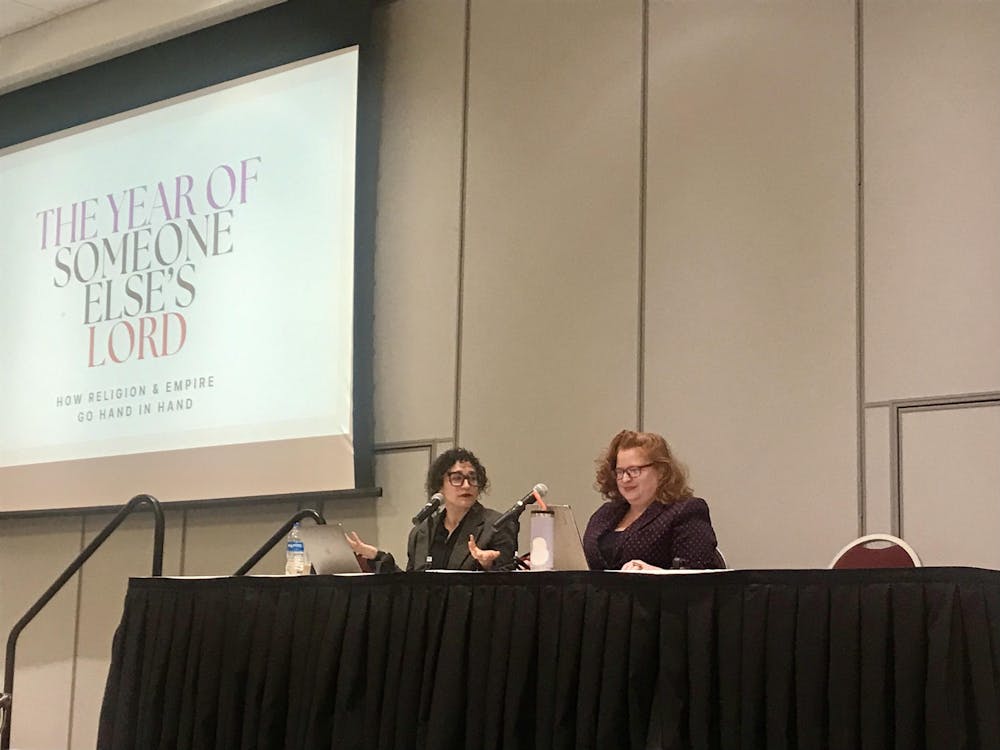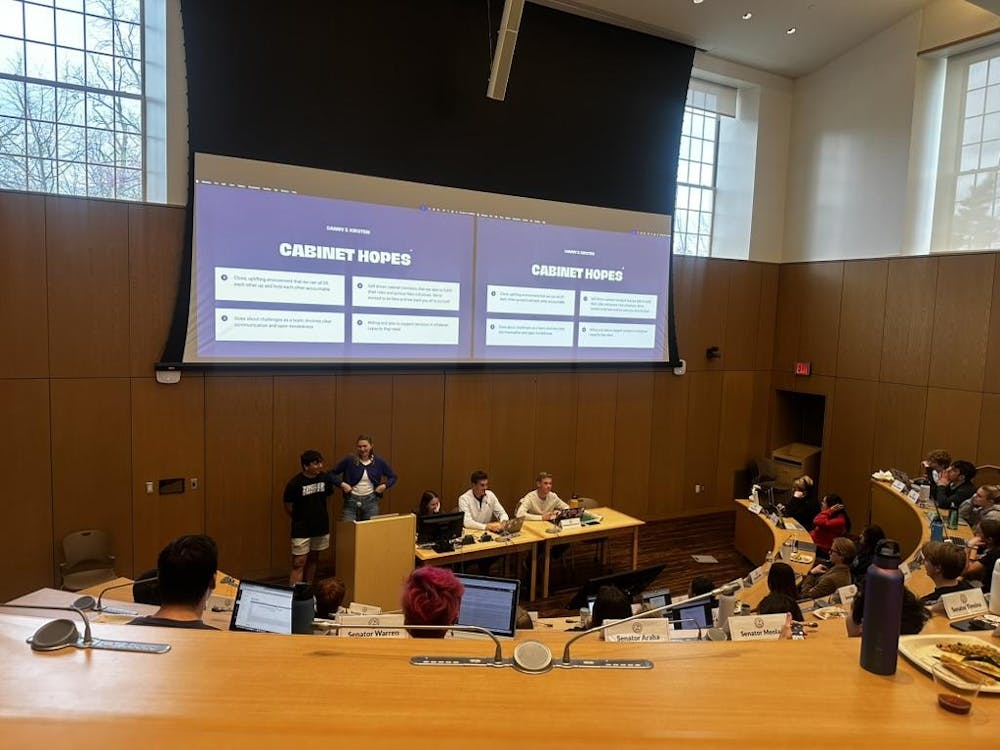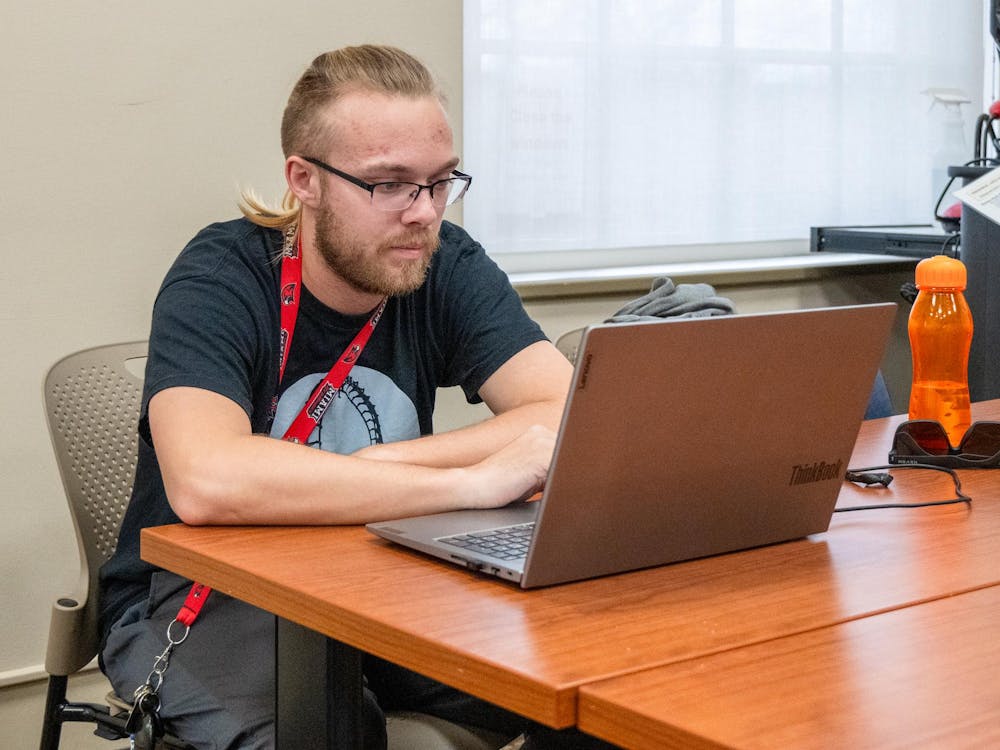With calendars packed full of due dates, meetings and appointments, many people don’t notice the other holidays and observances preloaded into their phone’s calendar – unless the holidays they celebrate are missing.
Megan Goodwin and Ilyse Morgenstein Fuerst, co-hosts of the podcast Keeping it 101: A Killjoy’s Introduction to Religion, visited Miami University on Tuesday, April 2, to record their first-ever live episode on how calendars shape religion and race.
“We’re hoping that by doing the podcast … by doing events like this, we can help folks better understand the stakes of the work that religion does in public,” Goodwin said.
In the episode, the hosts discuss how most United States calendars promote “white Christian privilege and dominance” every day. They supported this by asking the audience to pull out their phones and look at their calendars. Most calendars had observances for Christmas and Easter, two religious holidays celebrated by Christians preloaded into the phone, but many were missing dates for the start of Ramadan, Yom Kippur and Diwali.
“We kind of hashed out what ideas we thought would play well and would help with entry-level, so you don’t need to be an expert on religion,” Morgenstein Fuerst said. “... We thought [this topic] would work for Miami.”
Goodwin said that every day these calendars promote not only religious history, but also religious inclusion and exclusion as well. The hosts dived into the history of why the U.S. adopted the Christian calendar as its standard, which is largely marked by white European colonization.
Goodwin used the example of Ramadan, which follows the lunar calendar and started this year at sunset on March 10. She said Ramadan is always marked on calendars created in Muslim-majority countries, but Christmas is marked on calendars around the world, no matter what religion is predominantly observed. Therefore, most people live in “the year of someone else’s Lord.”
This furthered their argument that religion is racialized and is just how race functions in the U.S. to uphold white supremacy. To increase awareness of other religions, the hosts encouraged audience members to look at calendars that aren’t observed by Christians and look at calendars the university follows. They suggested audience members ask the university to include religious holidays that are left off the academic calendar.
Katya Paykina, a first-year secondary English education major, said she had never thought about some of the issues the hosts discussed, including the privilege found in the standard U.S. calendar. Paykina said growing up as a Jewish student, she never thought about not having religious holidays off in the same way that Christian students get Christmas off.
“I never looked at the calendar and was like, this is a Christian-based calendar, like I knew that, but I never really comprehended it in a sense,” Paykina said.
Although Paykina said she attended the discussion for a class, she said it was helpful thinking about the organization of religious holidays observed by schools as she wants to become a school principal in the future.
The discussion was hosted by the Department of Comparative Religion and sponsored by the Miami University Alumni Association, the Wilks Institute for Leadership and Service, META, the Menard Family Center for Democracy and the Department of Global and Intercultural Studies.
Enjoy what you're reading?
Signup for our newsletter
Liz Wilson, a professor in the comparative religion department, helped bring the hosts to campus with the help of John-Charles Duffy, an assistant teaching professor in the department. She first heard about the podcast when it started in 2020 and has been assigning it to her classes ever since.
“My students love it,” Wilson said. “It’s often the thing that they remember the most from the semester.”
Wilson said the biggest takeaway from the podcast is that her students learn not just ideas and beliefs about religion, but that it’s something people do with practice. Morgenstein Fuerst said educating students and younger generations is one of their goals for the podcast.
“We want students, particularly young people, to feel a little bit empowered,” Morgenstein Fuerst said. “When you take seriously the word ‘killjoy’ in our title … it usually means like ‘ugh she’s a real bummer,’ but we take it [as] … you have to be a deep optimist.”
To learn more, “Keeping it 101: A Killjoy’s Introduction to Religion” is available on most listening platforms, including Apple Podcasts and Spotify.




